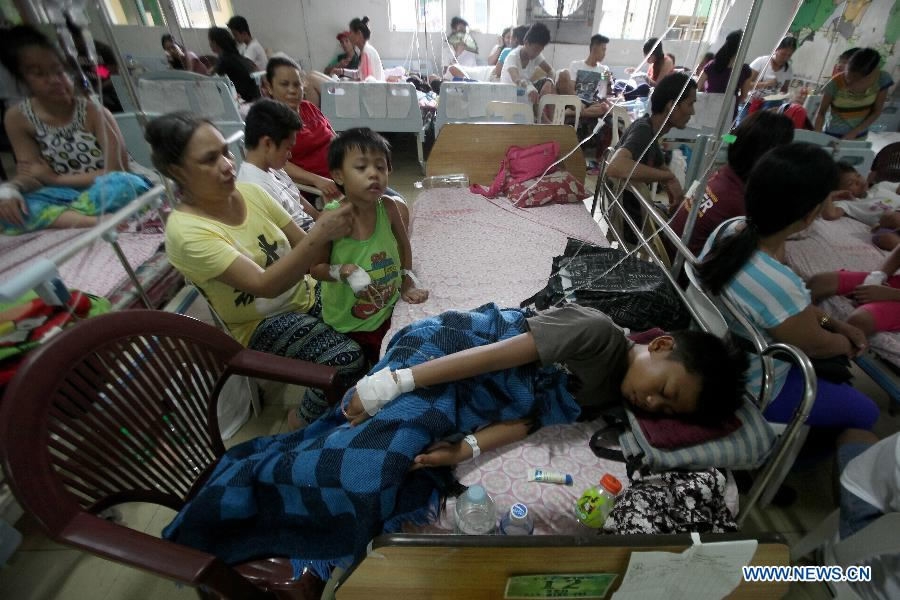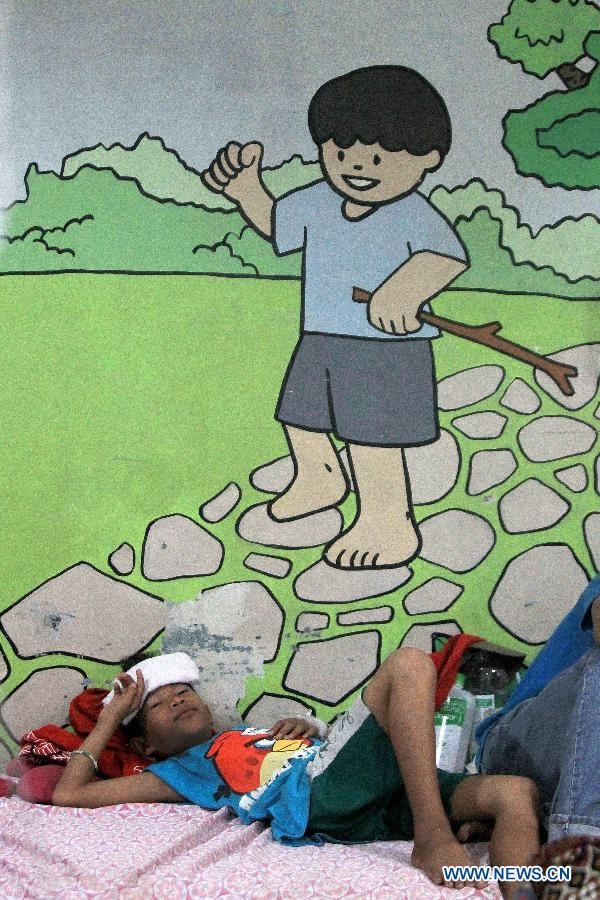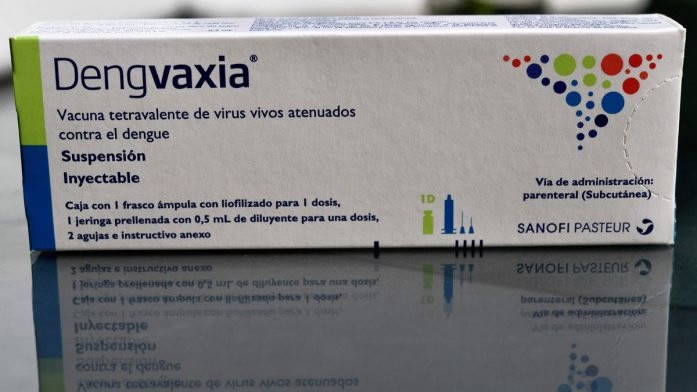It had just been a month since 12-year old Iran Luste got vaccinated against the deadly dengue virus. The mosquito-borne viral disease, one of the most fatal ones in the Philippines, can potentially affect half of the world’s population. Availing of the government-sponsored vaccine then was a no-brainer for Iran and his family.
“We were totally fine with it. We even signed a waiver,” Iran’s grandmother, Fe Luste, said.
A few weeks after the vaccination, however, Iran started having fever and rashes. Community health workers say it could be dengue. This has raised fear among Iran’s family that the vaccine may have caused him, instead of protecting him against the disease.
Sanofi, the manufacturer of the world’s first dengue vaccine, Dengvaxia, had said in recent statement that “in individuals who have not been previously infected by dengue virus, there is an increased risk of hospitalization for dengue and severe dengue, predominantly Grade I or II Dengue Hemorrhagic Fever (DHF).”

Children stricken with dengue disease crowd a ward inside a hospital in Quezon City, the Philippines, Oct. 7, 2015. The number of dengue cases in the country rose to 92,807 and 269 dengue-related deaths were recorded across the country from January 1 to September 19, according to the Epidemiology Bureau of the Philippine Department of Health. /Xinhua/Rouelle Umali
Children stricken with dengue disease crowd a ward inside a hospital in Quezon City, the Philippines, Oct. 7, 2015. The number of dengue cases in the country rose to 92,807 and 269 dengue-related deaths were recorded across the country from January 1 to September 19, according to the Epidemiology Bureau of the Philippine Department of Health. /Xinhua/Rouelle Umali
In effect, the vaccine protects only those who have a history of dengue infection. And in a news conference in Manila on Monday, the drug manufacturer’s representatives clarified that the vaccine itself does not cause severe dengue, but can worsen the disease when caught.
The Philippine government’s justice department has launched an investigation into the 70-million-US-dollar dengue vaccination program of the health department, which started during the administration of President Benigno Aquino III and went on until the current administration led by President Rodrigo Duterte suspended it last week.
Prior to the rollout of the dengue vaccination program in April 2016, some health experts had expressed reservations about the safety and efficacy of Dengvaxia. The World Health Organization’s (WHO) country representative, Dr. Gundo Aurel Weiler, told CGTN back then that the WHO was not yet in a position to endorse or reject the vaccine, as it was still convening a panel of experts to further evaluate the vaccine.

A boy stricken with dengue disease sleeps in a bed inside a hospital in Quezon City, the Philippines, Oct. 7, 2015. The number of dengue cases in the country rose to 92,807 and 269 dengue-related deaths were recorded across the country from January 1 to September 19, according to the Epidemiology Bureau of the Philippine Department of Health. /Xinhua/Rouelle Umali
A boy stricken with dengue disease sleeps in a bed inside a hospital in Quezon City, the Philippines, Oct. 7, 2015. The number of dengue cases in the country rose to 92,807 and 269 dengue-related deaths were recorded across the country from January 1 to September 19, according to the Epidemiology Bureau of the Philippine Department of Health. /Xinhua/Rouelle Umali
But he said the Philippines had been actively participating in the clinical trials, and therefore should be able to decide on its own.
“It’s not the mandate of the WHO to approve or disapprove the use of any medicinal product in a country. This is the prerogative of the country, especially those countries that have got well-established national regulatory authorities such as the case here in the Philippines,” Dr. Weiler said.
By mid-2016, the WHO had been flagging the same risk Sanofi now admits to be inherent in its vaccine. It is not clear whether Philippine health officials knew about it then, but they did suspend the program briefly.
There are claims at least four people may have died after being given the dengue vaccine, but both Sanofi and Philippine health department officials deny this, adding that there is no cause for alarm.
“We’re talking about only 10 percent or even lower of the 700,000 who’ve been vaccinated who are at risk of developing severe dengue. They may not even get dengue if they can take care of their immune system,” Lyndon Lee Suy, spokesperson of the Department of Health, said on Monday.
For parents like Gina Enriquez, however, keeping calm is easier said than done.
“My 10-year old son had fever yesterday. I told him it’s his fault. He insisted on getting vaccinated. His father said, ‘No, it’s the health department’s fault.’”




